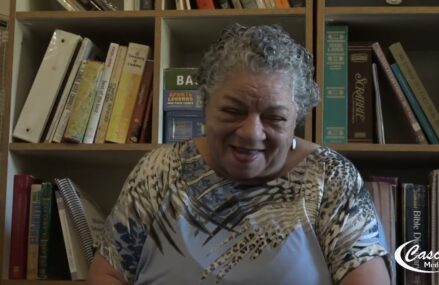
I am duly convinced that the time has come for us, as so-called African-Americans, to recognize our true identity and rise to our calling. We have long existed as a people within a nation, yet we have not truly claimed the full extent of what that means. So what do I mean by all of this? Simply put, the time has come for us to establish our own nation, drawing on the wealth of our resources, our abilities, and our cultural, historical and political heritage that are rightfully ours. In doing so, we would fulfill our universal and ancestral purpose, as well as our heavenly mandate to become a Kingdom of Priests and a Holy People, with YaH our Elohim as our King, Lawgiver and Judge.
The history and political tapestry of this land we call America offers us valuable lessons. Quite significantly, there are 14 recognized indigenous nations within the United States, each with its own government, laws and cultural identity. They stand as sovereign entities within the confines of a larger nation, navigating the land in their rights and asserting their existence on their own terms. These indigenous nations, such as the Cherokee, Navajo, and Sioux, remind us of the power that comes with recognizing and reclaiming one’s identity and autonomy.
For many of us so-called African-Americans, our cultural and ancestral heritage as Israelites calls us to a similar path. We are a people espoused in a covenantal relationship with the Most High, YHWH the Elohim of Israel, and are called to be a Kingdom of Priests and a Holy Nation as revealed in Exodus 19.5-6. This calling isn’t just a lofty idea; it’s a living directive, a mission that requires us to organize, govern and lead ourselves under the universal sovereign authority of YaH, our Father and King. Isaiah 33:22 states: “For YaH is our Judge, YaH is our Lawgiver, YaH is our King; He will save us.” This is a direct call to establish a nation under heaven’s rule, with a structure and a culture that aligns with our cultural values and principles.
This passage from Isaiah outlines a heavenly order where all functions of governance — judicial, legislative, and executive — are unified in the singular authority of the Most High. This verse reflects the essence of a theocratic anarchic form of government, where ultimate sovereignty and law originate from YHWH alone, rather than human institutions. In my book, The Kingdom Within, I explore how this model of governance serves as the true archetype for earthly governments, whose executive, legislative, and judicial branches are mere derivatives of this heavenly structure. The modern state’s separation of powers can be seen as an attempt to mimic the balance inherent in YHWH’s authority, yet without recognizing that true justice, law and leadership can only flourish when they are aligned under the Kingship and wisdom of YHWH, the ultimate source of order and governance.
To accomplish this feat, we are not without historical examples of people establishing nations within nations. Consider the Maroons of Jamaica, a group of formerly enslaved Africans who escaped to the mountains and formed self-sustaining, autonomous communities. They developed their own government, military, and culture, successfully resisting colonial powers for years. In the United States, we have the example of the Black townships and communities such as Greenwood, Oklahoma (Black Wall Street), Rosewood in Florida, and Nicodemus in Kansas. These communities were thriving centers of Black enterprise, governance, and culture, often established in the face of extreme adversity.
Even beyond these examples, consider the repatriation of Israelites in America who now make up the Kingdom of YaH in Dimona, Israel, as well as the Ethiopian Beta Israel community who returned to Israel under Operation Solomon. Both groups drew upon their rich heritage and unwavering faith to reclaim their identity and take bold steps back to the land of their ancestors. This return was more than just a physical relocation; it was a profound assertion of their spiritual and cultural belonging, a fulfillment of their understanding of who they are and what they are called to do. Their journeys serve as powerful witnesses of what becomes possible when a people embrace their divine calling and move with purpose towards their prophetic destiny.
Relative to prophetic fulfillment, the apocalypse of Daniel 7 speaks to a time when the set-apart ones will “take back the Kingdom.” This is not just a metaphysical or spiritual claim; it is a tangible, earthly declaration. We are the descendants of those who were brought here not by choice, but by force, stripped of our identities, languages, and traditions. Yet, within us resides a legacy that predates this captivity — a heritage of kingdom-building, wisdom, and governance. The prophecy of Daniel assures us that this inheritance is not lost, but rather awaits our claim.
That we have been the laborers and builders of this nation, contributing to its wealth and development in countless ways has been glaringly overlooked;.from inventors and artists to scholars and entrepreneurs, however, our contributions are undeniable. Nonetheless, we have often been marginalized, as our potential has been hamstrung by a system not designed for our flourishing. To continue to ask for validation or rights from the same system that profits off our subjugation is to verily deny our own sovereignty. But make no mistake, the Kingdom Daniel speaks of is one that must be taken — not given.
Look at the resources we already have: our psychological and intellectual capital, our creative genius, our spiritual wisdom, our financial resources, and most importantly, our resilience. We have built entire industries, led cultural movements and transformed societies. We are scientists, politicians, athletes, doctors, engineers, artists, and entrepreneurs. We have the power to educate our children, heal our communities, and build our infrastructure. We have the ability to create our own currency, establish our own laws, and defend our own borders. What is it, then, that we’re waiting on?
Given the manifestation of this reality, our nation would be more than a geographical territory; it would be a conscious, collective commitment to live by our principles and manifest our values. It would be a nation where we righteously self-governed, where our children grow up knowing their history, their purpose and their potential. A nation where we practice communal economics, ensuring that our resources circulate within our community, building wealth and opportunities for generations to come.
Forming our own nation does not mean withdrawing from the world; it means engaging with it on our own terms. It means moving from a posture of asking to one of seizing. It means realizing that the fulfillment of our potential, the healing of our people, and the manifestation of our destiny depend not on external validation, but on our internal conviction.
It is our right and our responsibility to build a future where we are the architects of our destiny, the keepers of our culture, and the stewards of our land. The time has come for us to step into our prophetic calling and claim the Kingdom Within that is rightfully ours. We have all the knowledge, resources, abilities and spiritual authority to do so.
As I envision our nation taking shape, I see us not only forming a community within this land but also being established in our own land, just as Deuteronomy 4:34 reminds us of YaH’s mighty hand in taking a nation for Himself. I believe that our calling is not confined to the borders drawn by others; it extends to a place divinely appointed for us—a land where we can fully embody our purpose as a Kingdom of Priests and a Holy People. This journey is not just about self-determination, but about returning to our rightful inheritance, where we can build, grow and thrive under the guidance of our Elohim. Just as our ancestors were led out of bondage and into a land of promise, so too must we move forward with confidence and faith, knowing that our destiny is to establish a sovereign nation that stands as a testament to YaH’s power, justice and love.
We are our own nation, the question is, are we ready to stand up and claim it?


